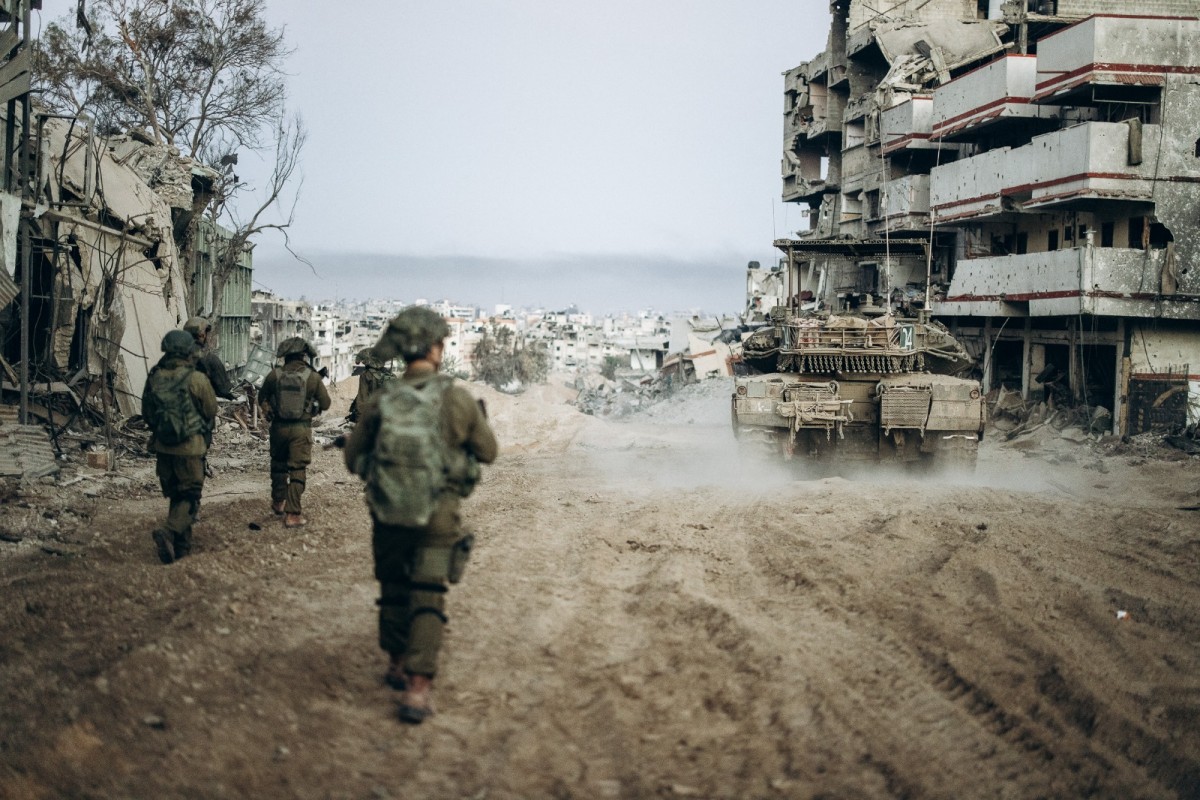War on Gaza: Prospects for ceasefire dim as Israel rejects calls to spare Rafah
Prospects for an Israel-Hamas ceasefire dimmed Sunday after the United States signalled it would veto the latest push for a UN Security Council resolution and mediator Qatar acknowledged that truce talks on the other diplomatic front have hit an impasse. The languishing efforts to pause the four-month-old war come as Israeli Prime Minister Benjamin Netanyahu […]

FILE PHOTO: This handout picture released by the Israeli army on January 1, 2024 shows Israeli soldiers operating in the Gaza Strip amid continuing battles between Israel and the Palestinian militant group Hamas. (Photo by Israeli Army / AFP)
Prospects for an Israel-Hamas ceasefire dimmed Sunday after the United States signalled it would veto the latest push for a UN Security Council resolution and mediator Qatar acknowledged that truce talks on the other diplomatic front have hit an impasse.
The languishing efforts to pause the four-month-old war come as Israeli Prime Minister Benjamin Netanyahu vowed on Saturday to reject international appeals to spare Gaza’s southernmost city Rafah, where an estimated 1.5 million people have sought refuge.
Israel’s relentless campaign to root out every Hamas battalion has edged closer to the city, with overnight attacks killing at least 10 Gazans there and in central Gaza’s Deir al-Balah, according to a tally by official Palestinian news agency Wafa.
The Gaza war began with Hamas’s October 7 attack which resulted in the deaths of about 1,160 people in Israel, mostly civilians, according to an AFP tally of Israeli official figures.
- Cost of living crisis: Nigeria, others risk social unrest – AfDB
- Niger, Burkina Faso, Mali announce plan to form tri-state confederation
Militants also took about 250 people hostage, 130 of whom are still in Gaza, including 30 who are presumed dead, according to Israeli figures.
Israel’s retaliatory assault on Gaza has killed at least 28,858 people, mostly women and children, according to the Hamas-run territory’s health ministry.
Neighbouring Egypt has grown increasingly wary that an Israeli invasion of Rafah could force the Gazans trapped there across the border.
President Abdel Fattah al-Sisi on Saturday reiterated Egypt’s opposition to any forced displacement into the Sinai desert.
In a phone call with French President Emmanuel Macron, both leaders agreed instead on the “necessity of the swift advancement of a ceasefire,” according to a summary.
Even if a temporary truce deal is struck at the talks in Cairo, Netanyahu said his troops’ ground invasion of Rafah will go ahead.
“Even if we achieve it, we will enter Rafah,” he said at a televised news conference Saturday.
Countries urging Israel otherwise are effectively saying “lose the war”, he said.
Netanyahu spoke as thousands of Israelis protested in Tel Aviv, the latest public call for an immediate election by demonstrators who also accuse the government of abandoning hostages.
“Take politics out of decisions about our loved ones’ lives,” said Nissan Calderon, brother of hostage Ofer Calderon. “This is the moment of truth, there won’t be many more like it if the Cairo initiative collapses.”
‘Not very promising’
Next week’s possible United Nations Security Council vote appears unlikely to advance the ceasefire effort with Washington already voicing opposition.
“The United States does not support action on this draft resolution,” US Ambassador to the UN Linda Thomas-Greenfield said in a statement. “Should it come up for a vote as drafted, it will not be adopted.”
Algeria’s draft resolution seeks an immediate humanitarian ceasefire, but Thomas-Greenfield said the United States instead supports a truce-for-hostages deal that would pause fighting for six weeks.
US President Joe Biden had “multiple calls” with Netanyahu as well as Egyptian and Qatari leaders this week “to push this deal forward”, she said.
Speaking at the Munich Security Conference, Qatari Prime Minister Mohammed bin Abdulrahman Al-Thani called those talks “not very promising”.
He said the efforts had been complicated by the insistence of “a lot of countries” that any new truce involve further releases of hostages.
His assessment came as Hamas threatened to suspend its involvement in the talks unless relief supplies reach the north, where aid agencies have warned of looming famine.
“Negotiations cannot be held while hunger is ravaging the Palestinian people,” a senior source in the Palestinian militant group told AFP, asking not to be identified as he is not authorised to speak on the issue.
